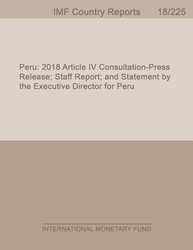
Japan: 2025 Article IV Consultation-Press Release; Staff Report; and Statement by the Executive Director for Japan
Japan: 2025 Article IV Consultation-Press Release; Staff Report; and Statement by the Executive Director for Japan
READ MORE...
Volume/Issue:
Volume 2025
Issue 082
Publication date: April 2025
ISBN: 9798229006811
$20.00
Add to Cart by clicking price of the language and format you'd like to purchase
Available Languages and Formats
| English |
Prices in red indicate formats that are not yet available but are forthcoming.
Topics covered in this book
This title contains information about the following subjects.
Click on a subject if you would like to see other titles with the same subjects.
Banks and Banking , Finance , Inflation , Labor , article IV consultation discussion , FATF follow-up report , balance sheet reduction , BOJ's price stability target , inflation expectation , Inflation , Labor markets , Anti-money laundering and combating the financing of terrorism (AML/CFT) , Central bank policy rate , Labor shortages , Global , Asia and Pacific
Also of interest
Summary
The 2025 Article IV Consultation highlights that after three decades of near-zero inflation, signs are growing that Japan’s economy is reaching a new equilibrium with inflation sustained at the Bank of Japan’s two percent headline inflation target. However, Japan continues to face challenges, including from its aging population and high public debt. Growth is expected to accelerate in 2025 and converge to its potential of 0.5 percent in the medium term. Policy priorities are to rebuild fiscal buffers, re-anchor inflation expectations, and advance structural reforms to support potential growth. Public debt is high and is expected to rise from 2030, driven by a higher interest bill and expenditure pressures related to spending on health and long-term care for an aging population. The monetary policy stance is appropriately accommodative and should help ensure inflation expectations rise sustainably to the 2-percent inflation target. Advancing structural reforms, including improving labor mobility, would help improve Japan’s allocative efficiency and boost productivity.
Copyright © 2010 - 2026
Powered by:
AIDC



